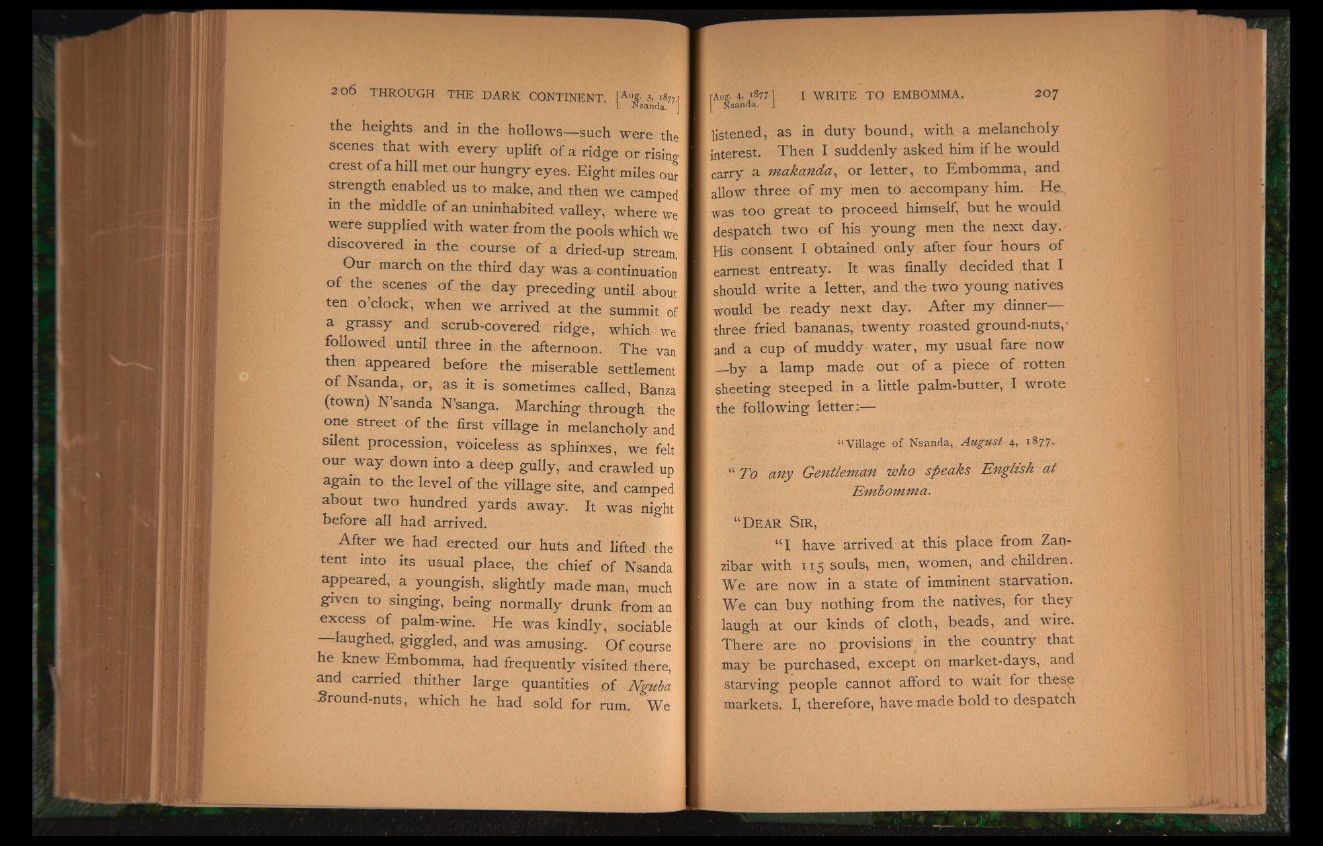
the heights and in the hollows— such were the
scenes that with every uplift of a ridge or rising
crest of a hill met our hungry eyes. Eight miles our
strength enabled us to make, and then we camped
in the middle of an uninhabited valley, where we
were supplied with water from the pools which we
discovered in the course of a dried-up stream
Our march on the third day was a continuation
of the scenes of the day preceding until about
ten o’clock, when we arrived at the summit of
a grassy and scrub-covered ridge, which we
followed until three in the afternoon. The van
then appeared before the miserable settlement
of Nsanda, or, as it is sometimes called, Banza
(town) Nsanda N’sanga. Marching through the
one street of the first village in melancholy and
silent procession, voiceless as sphinxes, we felt
our way down into a deep gully, and crawled up
agam to the level of the village site, and camped
about two hundred yards away. It was night
before all had arrived.
After we had erected our huts and lifted the
tent into its usual place, the chief of Nsanda
appeared, a youngish, slightly made man, much
given to singing, being normally drunk from an
excess of palm-wine. He was kindly, sociable
laughed, giggled, and was amusing. Of course
he knew Embomma, had frequently visited there,
and carried thither large quantities of Nguba
Sround-nuts, which he had sold for rum. We
listened, as in duty bound, with a melancholy
interest. Then I suddenly asked him if he would
carry a makanda, or letter, to Embomma, and
allow three of my men to accompany him. He
was too great to proceed himself, but he would
despatch two of his young men the next day.
His consent I obtained only after four hours of
earnest entreaty. It was finally decided that I
should write a letter, and the two young natives
would be ready next day. After my dinner-
three fried bananas, twenty roasted ground-nuts, -
and a cup of muddy water, my usual fare now
by a lamp made out of a piece of rotten
sheeting steeped in a little palm-butter, I wrote
the following letter:—
“ Village of Nsanda, August 4, 1877.
“ To any Gentleman who speaks English at
Embomma.
“ D e a r S i r ,
“ I have arrived at this place from Zanzibar
with 115 souls, men, women, and children.
We are now in a state of imminent starvation.
We can buy nothing from the natives, for they
laugh at our kinds of cloth, beads, and wire.
There are no provisions'^ in the country that
may be purchased, except on market-days,, and
starving people cannot afford to wait for these
markets. I, therefore, have made bold to despatch